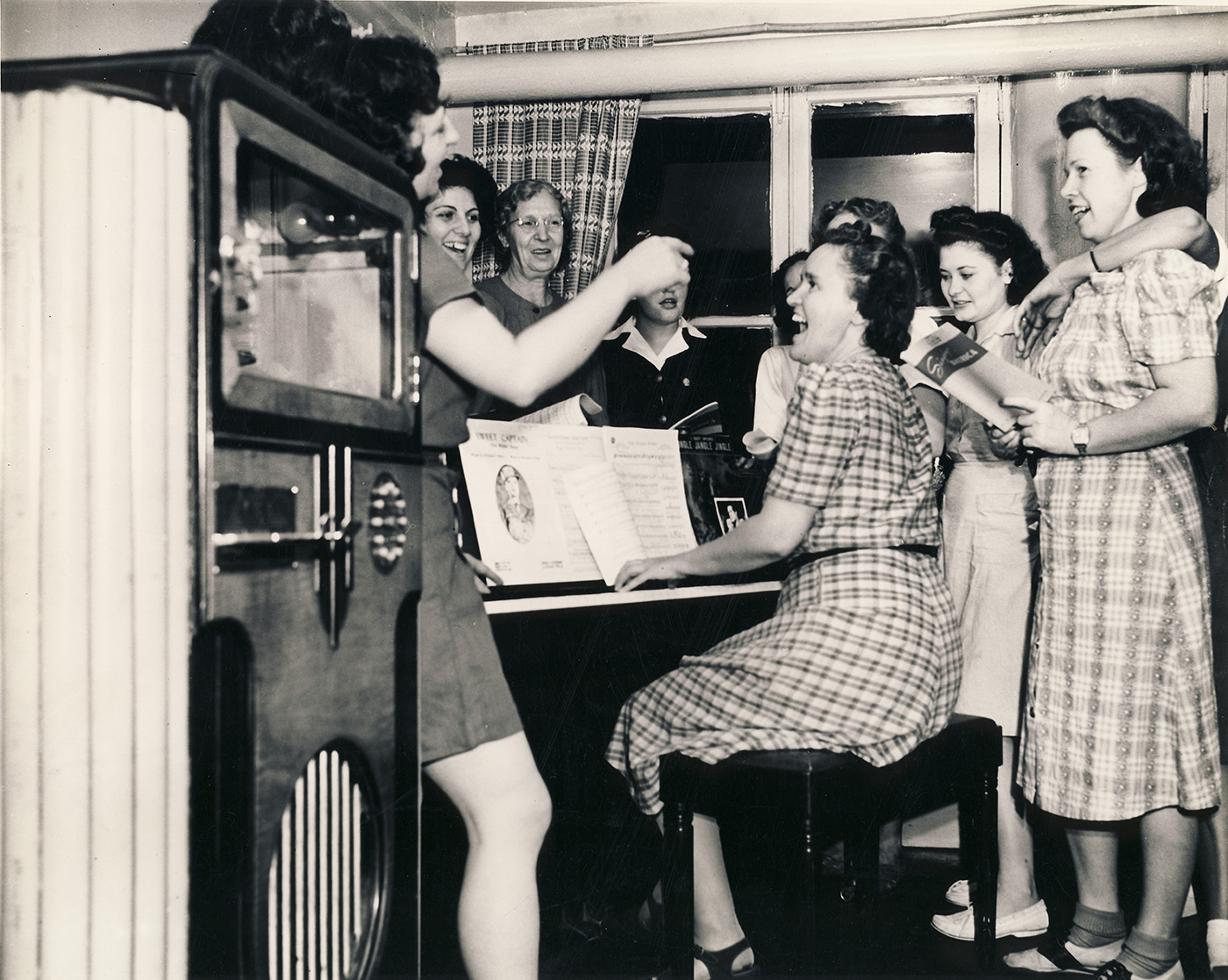
In 1941, the United Service Organization (USO) was formed to provide entertainment and support for service members during World War II. That spring, the Mobile chapter of the USO was established, with Mobile businessman Alfred Delchamps as chair. By the end of the year, a USO servicemen’s hall opened on the corner of Government and Warren streets at the Ross House and an industrial women’s hall opened at the Portier House on Conti Street. Both gave members a place for community and support during the war, as shown in the below photo from 1942. The Mobile chapter of the USO closed in the late 1950s, and many of the activities were kept alive by the YWCA well into the next decade.
Franklin D. Roosevelt enlisted the help of the following six organizations to form the USO:
– the Salvation Army;
– the Young Men’s Christian Association (YMCA);
– the Young Women’s Christian Association (YWCA);
– the National Catholic Community Service;
– National Travelers Aid Association; and,
– the National Jewish Welfare Board
These organizations united to care for military members and their families. The USO was formally disbanded in 1947, though operations continued during this time. It was formally reactivated two years later in the wake of the Korean war.
By The Numbers
64%: The growth of Mobile’s population between 1940 and 1944. The influx was a result of those coming to work in the ports and at Brookley Field.
17,000: The number of civilians who worked at Brookley Army Air Field, cementing it as Mobile’s largest employer during the war.
15,000: The number of Mobilians who served during World War II. Of this number, about 300 were killed in action.
$45,000: The amount of money raised in an early 1940s Red Cross effort for war relief in Mobile, led by USO chairman Alfred Delchamps. That’s more than $900,000 today!
Do you know any further details about this photo? Let us know! Email [email protected].





